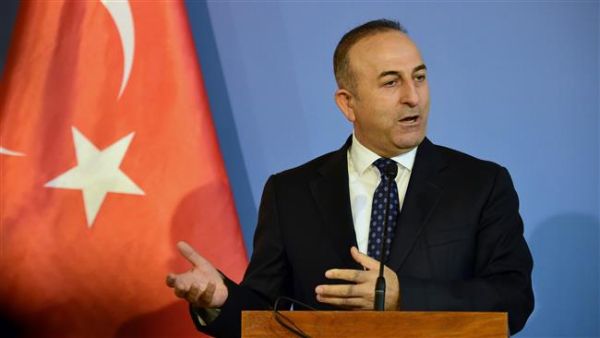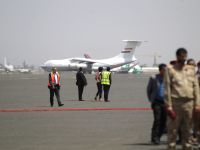Turkish Foreign Minister Mevlut Cavusoglu said Thursday Turkey will restart operations against Daesh soon and is keen to cooperate with Russia on the battle against the extremist group.
Even before the recent crisis in relations between Moscow and Ankara, Turkey had called on Russia to work "together" against the extremist group, Cavusoglu said in an interview on broadcaster NTV, adding that a proposal is "on the table" for future cooperations.
"The terrorist organization is our common enemy," he said.
Russia is carrying out operations in Syria, but has largely focused on Islamist rebels fighting President Bashar al-Assad, its ally.
Turkey, after much prodding, opened its southern Incirlik airbase, near the border with Syria, for the US-led coalition against Daesh and has also announced attacks against the group in Syria.
The Incirlik airbase was used in the July 15 coup attempt by rogue soldiers, prompting a brief closure and the arrest of the base commander. It was reopened to US flights shortly afterwards but Turkey has scaled down its own involvement in recent weeks.
This week, President Recep Tayyip Erdogan flew to Russia to meet his counterpart Vladimir Putin, with Ankara looking to reset its relations with Moscow after downing a Russian fighter jet near the border with Syria in November.
Erdogan's spokesman, Ibrahim Kalin, said Turkey and Russia - who are backing opposing sides in Syria - set up committees to discuss the war torn countries and the first sessions are to take place this week.
Turkey's attempt at warming ties with Russia has caused some consternation in the West over the NATO member's positions, but Turkish officials have stressed they are not looking to abandon their ties to the West.
However, Cavusoglu was outspoken against "NATO countries, who are our allies" which removed Patriot missile batteries from the country last year.
Germany and the US started pulling out at the end of last year, despite increased Russian military activity in neighbouring Syria.
Spain, another NATO member, continues to keep its missiles in Turkey and is committed until the end of this year.
By Shabtai Gold and Linda Say








